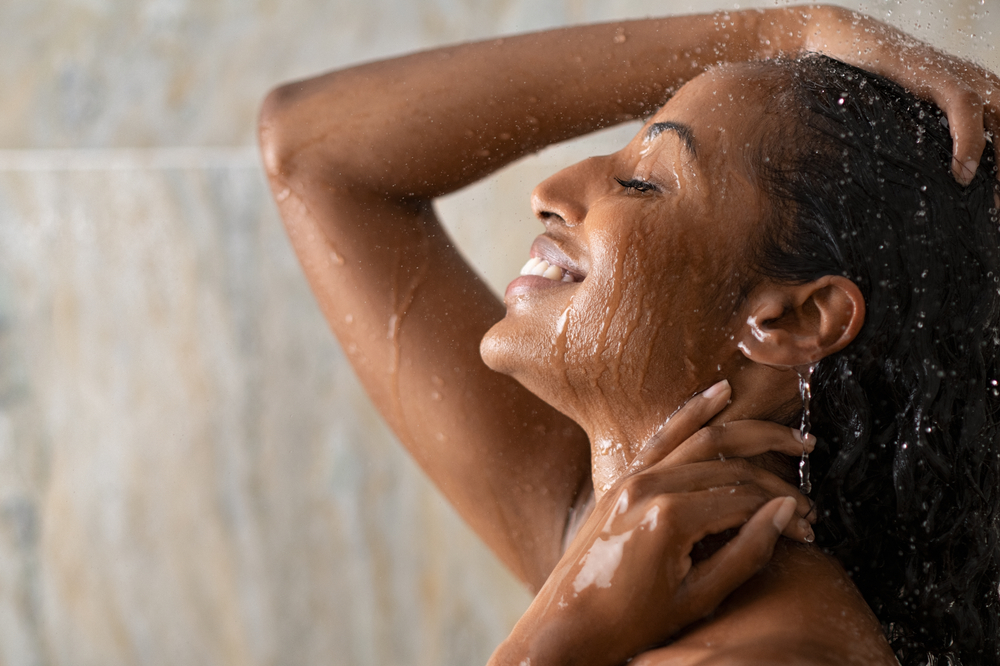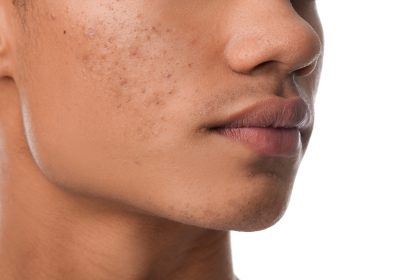For many, a morning shower is the ultimate wake-up call. It’s part of a daily ritual that refreshes the body, clears the mind and prepares you for the day ahead. But what if this routine, so often associated with cleanliness and rejuvenation, is actually contributing to persistent skin problems?
Millions of people struggle with issues like dryness, redness, acne and irritation—and often, the culprit is hiding in plain sight. If you’ve been investing in skincare products and still aren’t seeing results, your morning shower might be working against you.
The problem with hot water
There’s something undeniably comforting about a steamy shower first thing in the morning. But that heat might be quietly compromising your skin barrier.
Hot water strips the skin of its natural oils, the very oils that protect it from environmental stressors. These oils are essential for keeping your skin supple and hydrated. When removed too often or too aggressively, your skin can become dry, tight and itchy.
You might notice that your skin feels great right after stepping out of the shower, but as the day progresses, flakiness or redness appears. This is your skin reacting to that thermal shock and moisture imbalance.
If you frequently deal with eczema or dermatitis flare-ups, consider whether your shower temperature is too high. Even for those with relatively resilient skin, long-term exposure to hot water can gradually wear down your skin’s ability to retain moisture.
Skin’s natural morning vulnerability
Your body has a biological rhythm, and your skin is no exception. Dermatologists now understand that skin regenerates and repairs itself most actively during the night. This nighttime activity means that by morning, your skin is at its most vulnerable—sensitive, slightly dehydrated and in the midst of recovery.
Taking a hot shower during this delicate phase can disrupt your skin’s healing process. You may not feel the damage instantly, but over time, your skin’s resilience weakens.
If you suffer from acne or sensitive skin conditions, pay attention to when you’re cleansing and how that timing interacts with your body’s natural cycle. A gentler approach in the morning could make all the difference.
Harsh products compound the damage
Most commercial soaps and body washes are packed with sulfates, artificial fragrances and preservatives. While these ingredients help create a satisfying lather and pleasing scent, they can also be aggressive on the skin—especially when used first thing in the morning.
Pair these harsh cleansers with hot water, and you’ve got a recipe for irritation. This is especially problematic for people with dry, sensitive or acne-prone skin. Overwashing can strip away beneficial bacteria and disturb your skin’s microbiome, leading to breakouts and inflammation.
Switching to fragrance-free, pH-balanced cleansers could be a simple but effective move. Look for labels that mention terms like “non-comedogenic” and “dermatologist-tested.”
Post-shower habits matter too
Even after stepping out of the shower, your routine might be unintentionally contributing to skin problems. Most people aggressively towel-dry their face and body, which can cause micro-tears in the skin, especially when the skin is softened from hot water.
Using a rough towel or rubbing vigorously increases the likelihood of redness, irritation and even ingrown hairs.
Try gently patting your skin dry instead. If possible, use a soft microfiber towel designated just for your face. This small adjustment can go a long way in calming your skin.
Water quality concerns
Depending on where you live, your tap water might contain high levels of chlorine or minerals such as calcium and magnesium. While these are safe to ingest, they can be surprisingly harsh on the skin.
Chlorine dries out the skin, while hard water leaves behind residue that can clog pores. These elements can throw off your skin’s pH balance and disrupt natural oil production. If your skin always feels “squeaky clean” after a shower, it might be too clean—stripped of all essential moisture and nutrients.
Installing a shower filter could significantly reduce your skin issues over time. These devices are affordable and easy to install, and they help filter out chlorine, heavy metals and other irritants.
Morning versus evening showers
There’s a growing conversation around whether the morning is the best time to shower at all. While morning showers help you feel alert and refreshed, they don’t always support your skin’s needs.
Evening showers, by contrast, allow you to wash off the sweat, pollution and product buildup of the day. This can be especially helpful for anyone living in a city, working outdoors or wearing makeup or sunscreen throughout the day.
A nighttime shower may actually better support skin health and recovery. It gives your skin a clean slate as it enters its regenerative phase during sleep.
You don’t need to give up your morning routine entirely. Some people find benefit in a quick rinse with lukewarm water, followed by moisturizing—but without the harsh soaps and extended scrubbing.
Simple fixes for healthier skin
The good news? You don’t need to abandon your morning shower ritual entirely. Small changes can yield big improvements:
- Lower the water temperature – Lukewarm is ideal
- Limit your shower time – Keep it to 5-10 minutes
- Choose gentler products – Look for hydrating cleansers without sulfates
- Moisturize immediately – Apply within three minutes of drying off
- Consider a shower filter – Especially in areas with hard water
- Use soft towels – Pat dry instead of rubbing
These small steps can restore your skin’s natural balance and prevent future flare-ups.
When to seek professional help
If you’ve tried adjusting your shower habits and still notice persistent skin issues, it may be time to consult a professional. A dermatologist can help identify whether your skin condition is linked to allergies, hormonal changes or underlying health concerns.
They may also recommend specific products or treatments tailored to your skin type and lifestyle.
Remember: taking care of your skin doesn’t require a complicated multi-step routine. It starts with understanding how your daily habits—like your morning shower—play a role in skin health.
Rethinking your routine
Your morning shower may seem harmless, even beneficial, but it could be contributing to your skin problems in unexpected ways. From high water temperatures to product choices and the timing of your cleanse, subtle details matter.
Reevaluating your routine can lead to smoother, healthier and more resilient skin. And you don’t have to sacrifice comfort or cleanliness to get there. Sometimes, a small shift in how you start your day can lead to a dramatic improvement in how your skin feels and looks.
Taking control of your skin starts with awareness. Once you understand the “why” behind your symptoms, the “how” becomes easier to navigate. You deserve a daily routine that not only energizes you—but protects and nourishes your skin in the process.

















